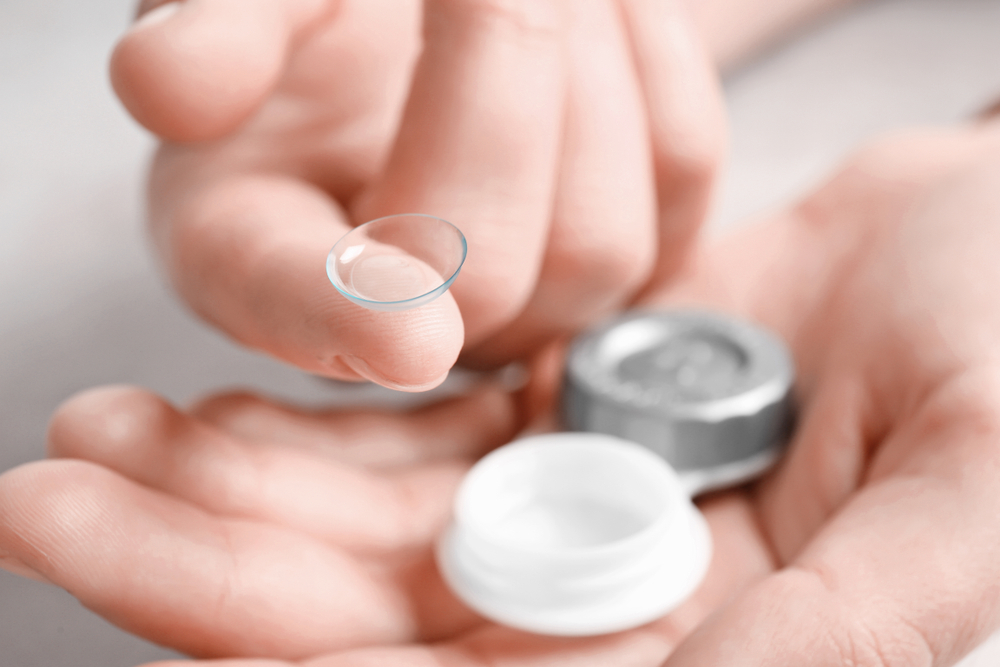
Contact lenses have become a popular choice for many who need vision correction but do not want to wear glasses. They offer numerous benefits, such as a wider field of vision and the ability to participate in activities that glasses may hinder. Contact lenses come in various types, each with its own set of advantages and disadvantages. Understanding these differences is essential in choosing the right option for your unique vision needs.
Different Types of Contact Lenses
There are several types of contact lenses, each designed to address specific vision needs and lifestyle preferences. Soft lenses are the most common type, made from flexible plastics that allow oxygen to pass through to the cornea. They are typically comfortable to wear and require a short adaptation period. Soft lenses come in various forms, such as daily disposables, extended wear, and toric lenses for astigmatism.
Rigid gas permeable lenses, also known as hard lenses, offer sharper vision than soft lenses and are highly breathable. They are durable and can correct most vision problems. However, they require a longer adaptation period.
Hybrid contact lenses combine the comfort of soft lenses and the clear vision of rigid gas permeable lenses. They have a rigid center and a soft outer ring. While they offer excellent vision quality, they can be more difficult to fit and more expensive than other types of contact lenses.
Multifocal lenses are designed for those with presbyopia, a condition that affects your ability to focus on close objects as you age. They offer clear vision at all distances. Finally, cosmetic or decorative lenses alter the appearance of your eyes and must be used with caution to avoid damaging your eyes.
Factors to Consider When Choosing Contact Lenses
When choosing contact lenses, several factors should be considered. Your lifestyle is one of the most important. If you lead an active life or engage in sports, soft lenses or daily disposables may be the best option. If you have a complex prescription or want sharper vision, rigid gas permeable lenses may be suitable.
Your eye health is another crucial factor. Conditions like dry eyes, allergies, or astigmatism can influence the type of lenses you can comfortably wear. Of course, your vision needs are essential. If you need correction for presbyopia, multifocal lenses may be the best choice.
Lastly, the cost and maintenance required for different types of lenses should be considered. Some lenses, like daily disposables, require no cleaning but may cost more in the long run. On the other hand, rigid gas permeable lenses require regular cleaning but are more durable and may be more cost-effective over time.
The Role of an Optometrist in Contact Lens Fitting and Aftercare
An optometrist’s role extends beyond prescribing contact lenses. The doctor also ensures that your lenses fit properly and provide the necessary aftercare. This includes teaching you how to insert, remove, and care for your lenses, as well as advising you on how to handle any potential complications.
Regular follow-up appointments are crucial to monitor your eye health and ensure your lenses are still fitting well and providing the right vision correction. These checks also allow me to identify any signs of potential problems early and make necessary adjustments to your prescription or lens type if needed.
Contact lenses are a safe and effective form of vision correction, but they require proper care and attention. Your relationship with your optometrist is a partnership, and together we can ensure the health of your eyes and the success of your contact lens experience.
Daily Care and Maintenance of Contact Lenses
Taking care of your contact lenses is essential to maintaining your eye health and ensuring your lenses perform at their best. This includes cleaning and disinfecting your lenses daily, using only the solutions recommended by your optometrist. Never use water or saliva to clean your lenses, as this can introduce harmful bacteria and lead to serious eye infections.
Always wash and dry your hands before handling your lenses and store them in a clean lens case. Replace your lens case at least every three months to prevent bacterial buildup. Avoid sleeping in your lenses unless they are specifically designed for overnight wear, as this can deprive your eyes of oxygen and lead to complications.
If you experience any discomfort, redness, or changes in vision, remove your lenses and contact your optometrist immediately. Regular lens care and maintenance, along with consistent follow-up care with your optometrist, are the keys to a successful contact lens experience.
Embracing Clear Vision with the Right Contact lenses and Proper Care
Contact lenses offer a versatile and convenient option for vision correction. The different types of contact lenses available cater to a wide variety of vision needs and lifestyles. With the guidance of an optometrist, you can find the lenses that best suit your needs and learn how to care for them properly. The success of your contact lens experience relies on a collaborative relationship with your optometrist and a commitment to daily lens care and maintenance.
To learn more on types of contact lenses and which is right for you, consult with our optometrist at Marshall EyeCare in our Aberdeen, New Jersey office. Call (732) 837-0988 to schedule a contact lens exam today.








